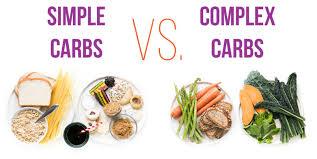Five types of food to increase your psychological well-being
Curated from: theconversation.com
Ideas, facts & insights covering these topics:
5 ideas
·6.73K reads
13
Explore the World's Best Ideas
Join today and uncover 100+ curated journeys from 50+ topics. Unlock access to our mobile app with extensive features.
Complex Carbohydrates
Complex carbohydrates are found in fiber and starch and are beneficial for brain health as they release glucose slowly into our system, helping stabilize our mood. Simple carbohydrates are found in sugary foods, cause fluctuations of feelings of happiness and produce a negative effect on our psychological well-being.
453
1.69K reads
Antioxidants
Our cells generate energy through oxidation, but oxidation also reduces the dopamine and serotonin in the brain and creates oxidative stress.
Antioxidants found in brightly colored foods like fruits and vegetables act as a defense against oxidative stress and inflammation in the brain and body. Antioxidants also repair oxidative damage and scavenge free radicals that cause cell damage in the brain.
469
1.3K reads
Omega 3
Omega 3 are polyunsaturated fatty acids that are involved in the process of converting food into energy. They are important for the health of the brain and the communication of its feel-good chemicals dopamine, serotonin and norepinephrine.
Omega 3 are essential nutrients that are not readily produced by the body, so we must include foods high on it in our diet.
435
1.16K reads
B Vitamins
B vitamins aids in the production of our brain’s happiness chemicals serotonin and dopamine and can be found in green vegetables, beans, bananas, and beetroot.
High amounts of vitamins B6, B12, and folate in the diet have been known to protect against depression and too low amounts to worsen the symptoms.
473
1.17K reads
Prebiotics And Probiotics
Our gut’s flora influences our mood, behavior and brain health. Chemical messengers produced in our stomach influence our emotions, appetite and our reactions to stressful situations.
Prebiotics and probiotics found in yogurt, cheese and fermented foods work on the same pathways in the brain as antidepressant medications and studies have found they might have similar effects.
436
1.39K reads
IDEAS CURATED BY
I am a sucker for gadgets, stubborn and curious. Eating right and sleeping well is important to me.
Caroline V.'s ideas are part of this journey:
Learn more about health with this collection
The importance of physical activity
The role of genetics in lifespan
How to maintain a healthy diet
Related collections
Similar ideas
10 ideas
6 ideas
10 ideas
Read & Learn
20x Faster
without
deepstash
with
deepstash
with
deepstash
Personalized microlearning
—
100+ Learning Journeys
—
Access to 200,000+ ideas
—
Access to the mobile app
—
Unlimited idea saving
—
—
Unlimited history
—
—
Unlimited listening to ideas
—
—
Downloading & offline access
—
—
Supercharge your mind with one idea per day
Enter your email and spend 1 minute every day to learn something new.
I agree to receive email updates





